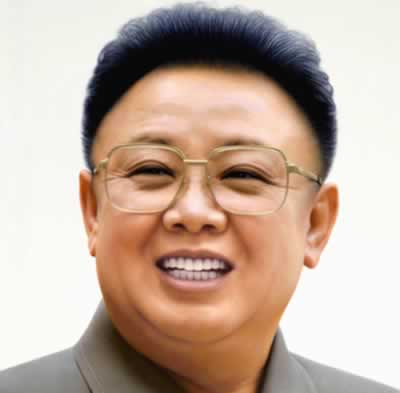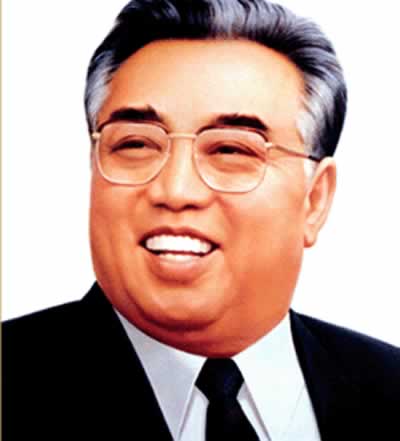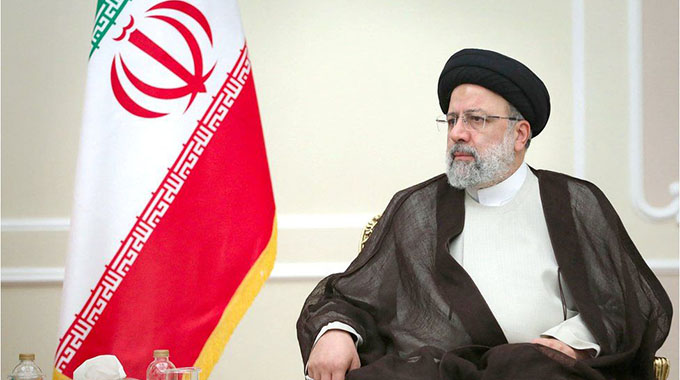Undying exploits in defending peace

THE exploits Chairman Kim Jong Il (1942-2011) of the Democratic People’s Republic of Korea performed in thwarting the imperialists’ moves of aggression, high-handedness and arbitrariness that prevailed on earth and defending peace and security by dint of his original Songun politics, will go down for generations in history.
The Korean peninsula, which was the venue of the Korean war, the fiercest after the end of World War II, has continuously experienced the recurrent hair-trigger situations for over half a century after the war; these are entirely due to the United States that has tens of thousands of its troops stationed in south Korea and has staged military exercises and aggravated the situation wielding nuclear weapons.
If another war breaks out in the peninsula, it will go beyond the limits of the previous war; it will become the most catastrophic nuclear war mankind has yet unheard of.
It was none other than Chairman Kim Jong Il of the DPRK who safeguarded peace and security on the Korean peninsula that has direct bearings on the destiny of mankind.
He provided a sure guarantee for peace on the Korean peninsula by administering Songun politics for several decades.
Since his early years he had always kept in his mind that a country with weak military capabilities could defend neither its national security nor peace. And he started his Songun-based leadership with the inspection of a guard unit of the Korean People’s Army on August 25 1960.
From that day on, he constantly pursued his Songun politics that attaches importance to military affairs and gives priority to them over all other affairs.
Thanks to his energetic Songun-based leadership, the KPA was strengthened into an invincible army that reliably defends peace at the outpost in the East of the world.
Kim Jong Il frustrated at every step military provocations and aggressive plots of the US by displaying his matchless courage and grit.
In January 1968 when a US armed spy ship Pueblo was captured within the territorial waters of the DPRK, the situation on the Korean peninsula was on the brink of war.
The whole world was very apprehensive of a possible outbreak of another Korean war and the former Soviet Union even advised the DPRK government that the latter should return the ship lest a war would break out.
At that time Kim Jong Il expressed his firm resolution that the captured crew could never be released unless the US made an apology to the Korean people and even if it made an apology, the ship, a booty of the DPRK, would not be returned.
He also put forward adroit operational plans to cope with the military moves of the US which had dispatched large-scale aggressive troops, including three aircraft carriers, to the areas around the Korean peninsula while clamouring for “retaliation.”
The service personnel and civilians of the DPRK prepared themselves fully for combat, firmly determined to retaliate against the “retaliation” of the US and return an all-out war for its all-out war.
The United States could not but present a letter of apology to the DPRK.
The same was the cases with the intrusion of a large espionage plane EC-121 into the air space of the DPRK in April 1969 and the Panmunjom Incident, or an “axe case,” in 1976.
Every time he brought the US to its knees and prevented a war from breaking out. If the DPRK showed even a slightest sign of hesitating or retreating under those circumstances, the US would have taken it as weakness or vulnerability and started a war against the DPRK.
Kim Jong Il, after he was elected the Chairman of the DPRK National Defence Commission, held higher the banner of Songun and achieved decisive victory in the DPRK-US nuclear showdown between the late 20th and early 21st centuries, thus providing a sure guarantee for defending peace not only in the Korean peninsula and Northeast Asia but in the rest of the world.
After the end of the Cold War the US, posing itself as the “only superpower” of the world, provoked wars in many parts of the world in order to militarily stifle the countries that were going against the grain. Typical are the wars in the Persian Gulf, Balkan peninsula, Afghanistan and Iraq.
Meanwhile, it has always kept its eyes on the DPRK, escalating the situation with a view to start another Korean war; declaring that the second Gulf War would be a Korean war, it worked out a “120-day war scenario,” and in 1998, insisting on the suspicion of “underground nuclear facilities,” schemed to stage a “surgical strike” by aircraft; afterwards it designated the DPRK as part of the “Axis of Evil” and adopted its national policy of “nuclear pre-emption.”
At the crossroads of war and peace, he comprehensively administered the Songun politics, that regards military affairs as the foremost of all affairs of the state and pushes ahead with national defence and the socialist cause as a whole with the KPA as the core, as the main force.
From 1995 until the last moment of his life, he inspected 2 492 units in the sector of the armed forces to strengthen in every way the combat efficiency of the army.
He also ensured that all people gave importance to military affairs and were well versed in them and that the whole country was turned into an impregnable fortress.
As the DPRK is possessed of a strong war deterrent, it brought an end to the era in which the imperialists blackmailed it with nuclear weapons.
Chairman Kim Jong Il’s exploits performed for the cause of global peace will always be remembered by mankind. – Embassy of the Democratic People’s Republic of Korea.









Comments